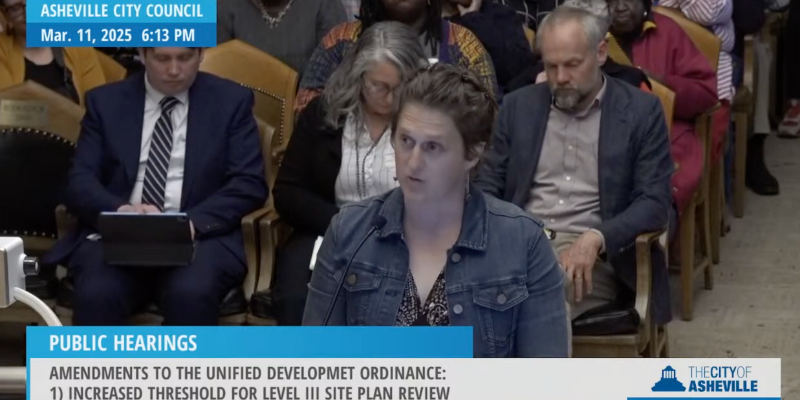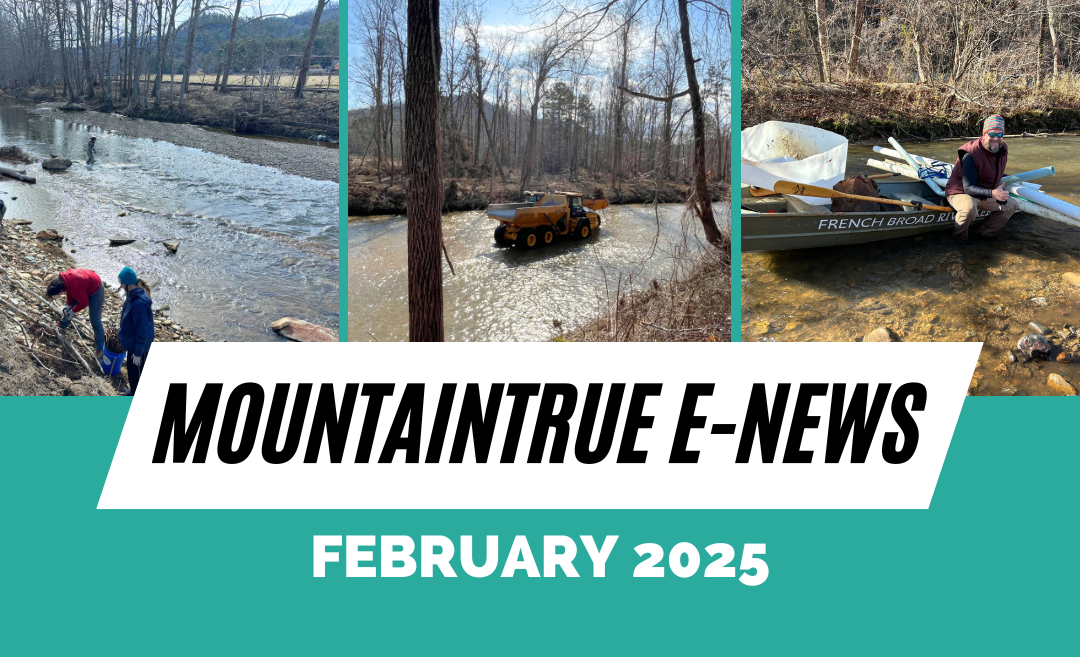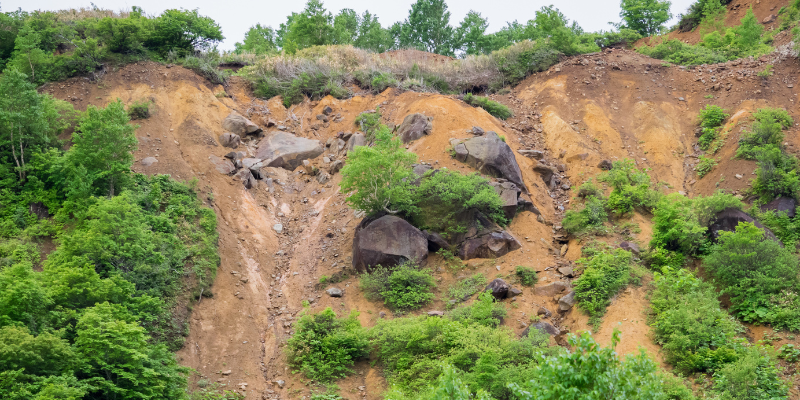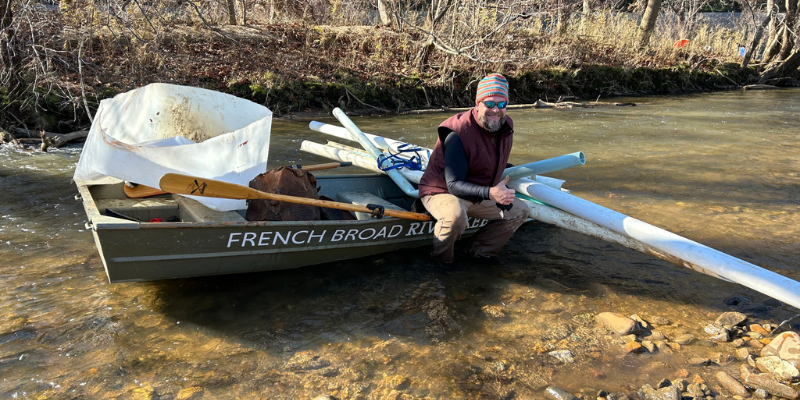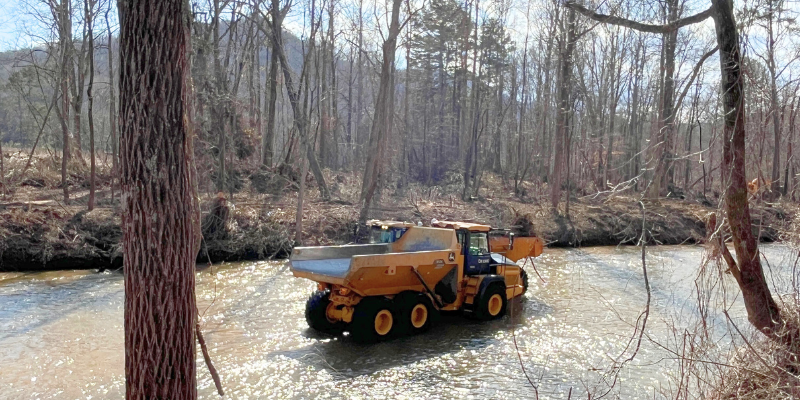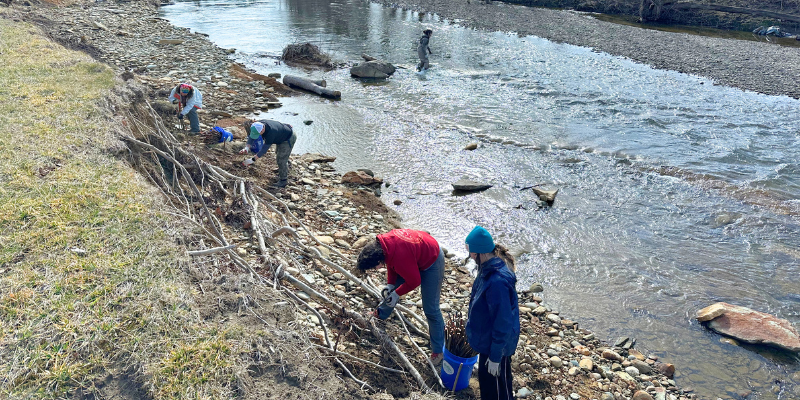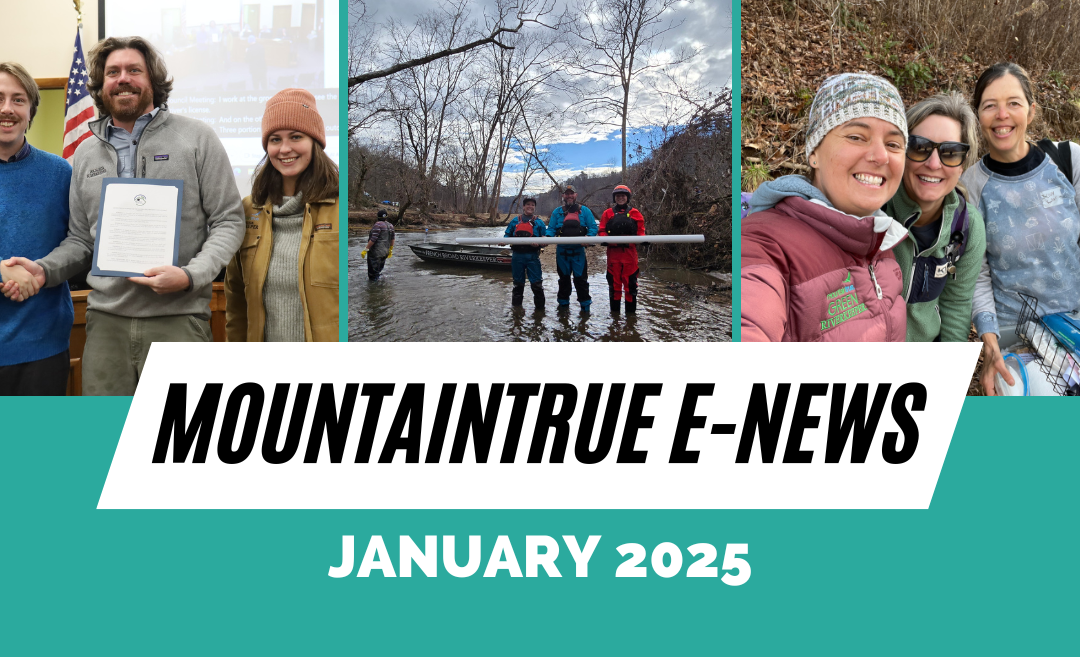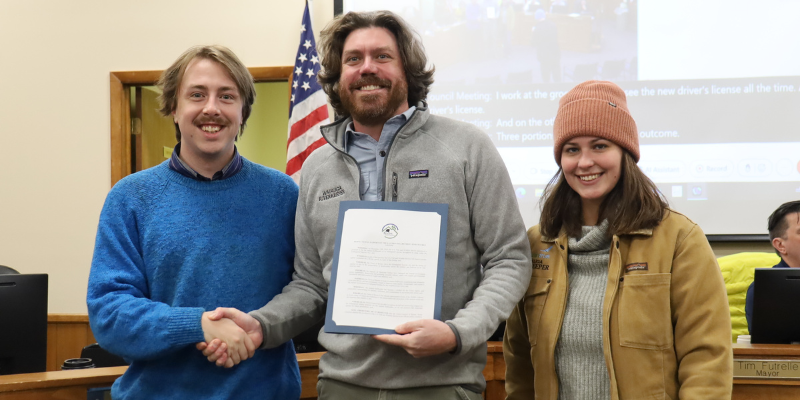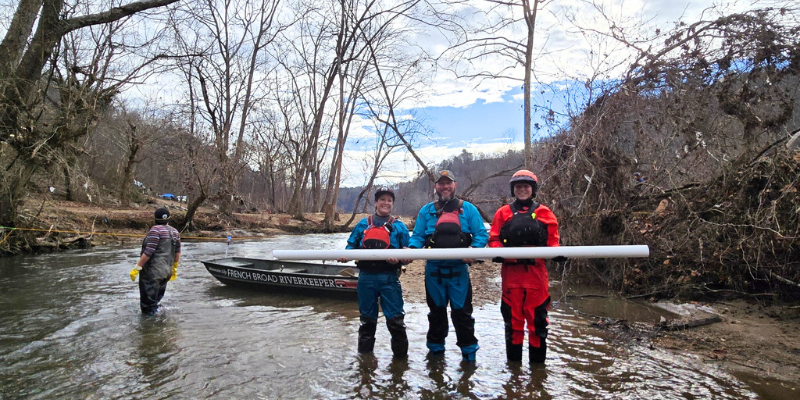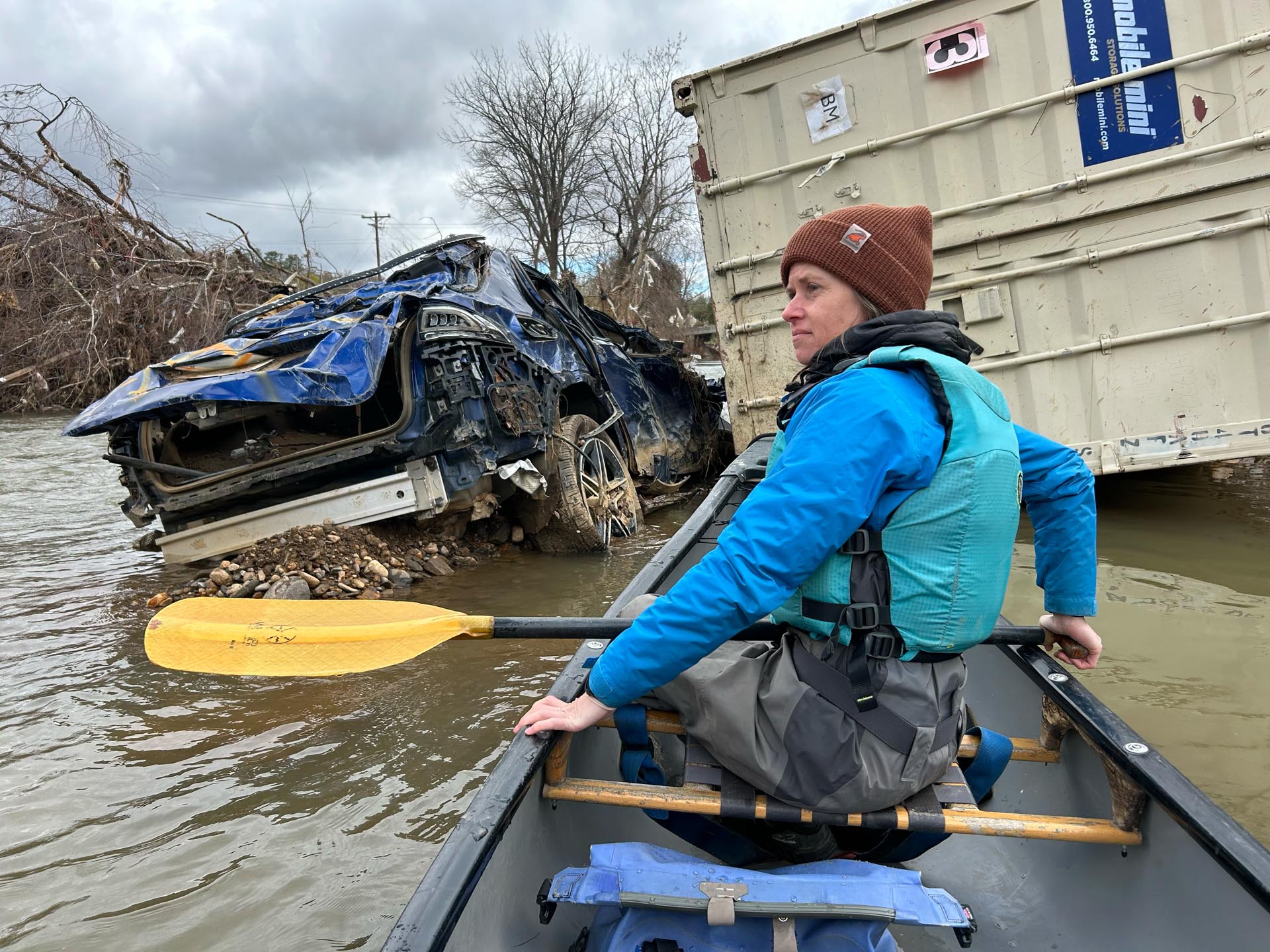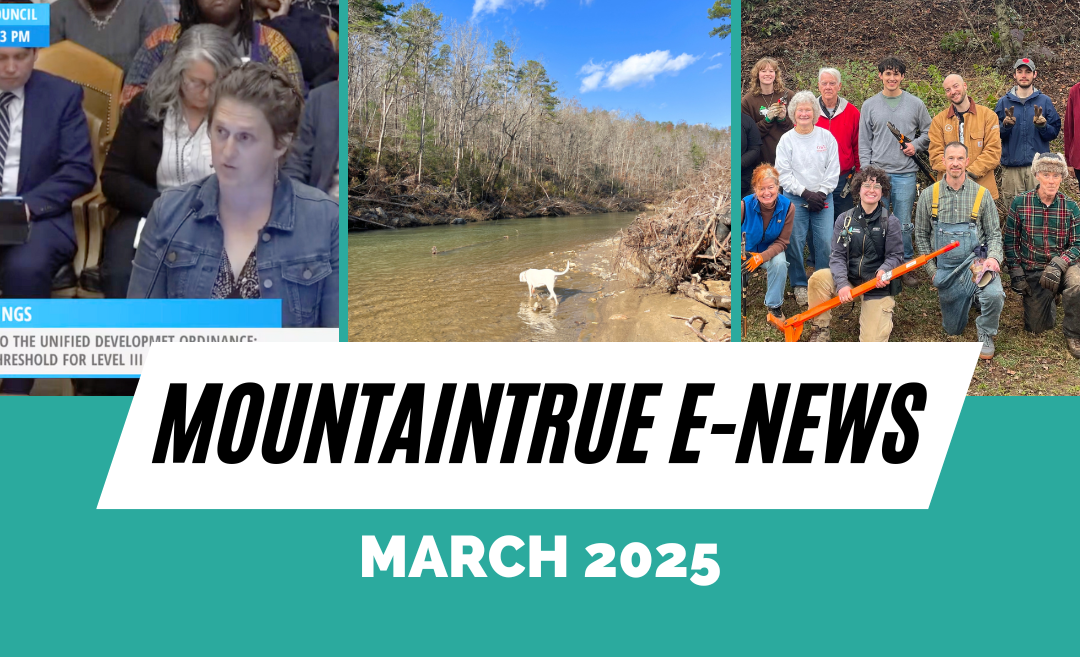
MountainTrue’s March E-Newsletter
MountainTrue’s March E-Newsletter
Spring is nearly here! Read on to find out what our Riverkeepers, Resilient Forests team, and Healthy Communities team have been up to + find out how to get involved.
MountainTrue Updates
We’re hiring for two positions:
✅Organizing Director: The Organizing Director will lead and manage MountainTrue’s grassroots organizing efforts across our programs, focusing on training staff and organizers in the skills necessary to build authentic relationships, empower our communities, and develop local leaders to drive community-led solutions. Accepting applications on a rolling basis: learn more + apply.
✅Creation Care Alliance Organizer: The Creation Care Organizer leads our Creation Care Alliance grassroots organizing efforts, focusing on building authentic relationships with people of diverse faiths, empowering local communities, expanding and strengthening our network of Covenant Partner congregations, and developing local leaders to drive community-led solutions. Accepting applications on a rolling basis: learn more + apply.
Clean Waters Program Updates
Join us in protecting our waterways!
From May to September, MountainTrue Riverkeepers and dedicated volunteers collect weekly water samples from over 90 sites across Western North Carolina and beyond, ensuring our waters stay clean and safe. You Can Make a Difference! Become a sponsor for a Swim Guide site and help us protect the health of our rivers, lakes, and streams. Your support will directly contribute to safeguarding our community’s water quality. Learn more here.
Status on post-Helene cleanups:
Our cleanup work continues and we have removed millions of pounds of trash from our waterways, but we are also expanding our capacity. Thanks to a partnership with Land of Sky Regional Council, we’re hiring 10 staff dedicated to cleaning up our waterways. We’ve also been hard at work lobbying the NC General Assembly for additional cleanup funds for WNC.
French Broad Riverkeeper
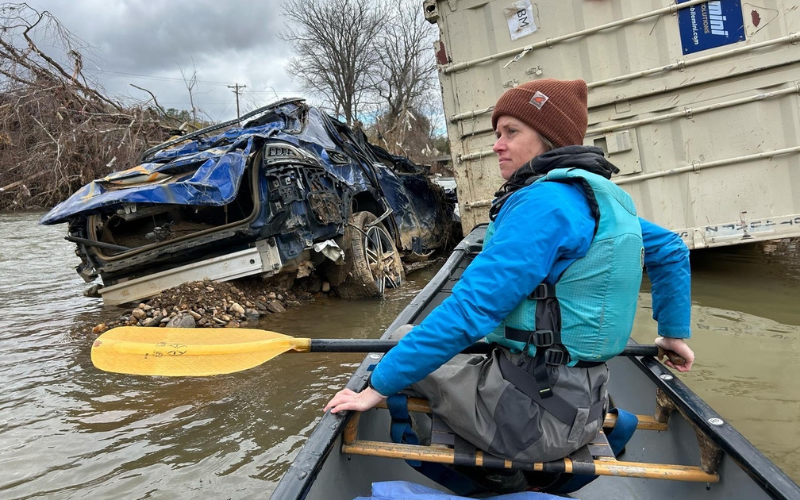
Anna Alsobrook paddles the French Broad River after Helene.
A message from your new French Broad Riverkeeper, Anna Alsobrook:
“I’ve had the privilege of working alongside Hartwell [Carson, previous French Broad Riverkeeper] for the last 10 years, and there’s not a week that goes by that I don’t learn something from him. I’m so grateful for his mentorship and guidance. The French Broad is lucky to have had his voice for the last 20 years.
My love of the French Broad started with a canoe-camping trip down section 10 of the river with an NC Outward Bound trip. I’d never done or seen anything quite like that before. I saw a sacredness to this river and these mountains. It has truly been an honor to work for its protection, and I am thrilled to step into the Riverkeeper role.”
Anna has been part of the MountainTrue team since 2014, most recently serving as our Watershed Science & Policy Manager. And don’t worry, we’re not saying goodbye to previous French Broad Riverkeeper Hartwell Carson; he’s now transitioned to MountainTrue’s Clean Water Program Director and can still be reached at hartwell@mountaintrue.org! Stay up-to-date with Anna’s work as French Broad Riverkeeper on Instagram and Facebook; she can also be reached via email at anna@mountaintrue.org.
French Broad Paddle Trail update
Check out the French Broad Paddle Trail’s website for the status of access points and campsites along the river between Rosman, NC, and Newport, TN. We’ve been working with public land managers and outfitters to ready the river for this year’s paddling season by organizing cleanups, repairing access points, and tidying up campsites. We look forward to seeing y’all out there in the months to come!
Green Riverkeeper
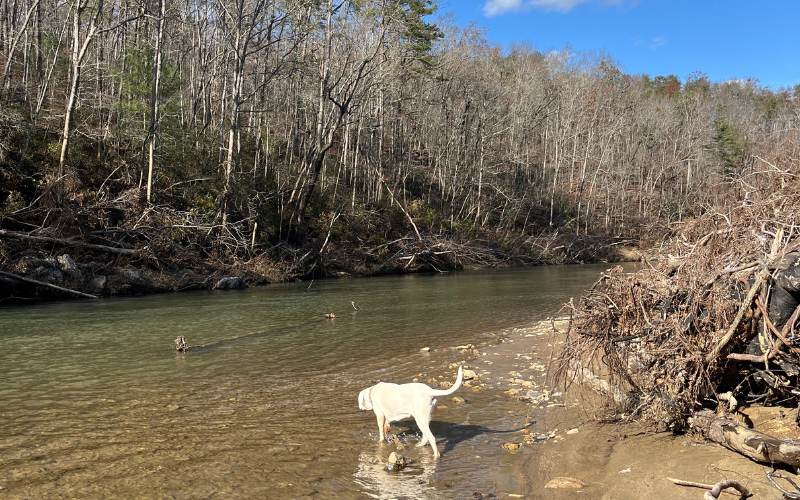
Green Riverkeeper pup, Shug, checks out the Green at Big Rock access.
Another post-Helene update from Green Riverkeeper Erica Shanks:
Things on the Green are continuously changing (mostly for the good)! Locations that we’d planned on cleaning up in March are now being taken care of by the Army Corps of Engineers and hired contractors.
We’re planning a cleanup volunteer opportunity on Saturday, May 3, on the confluence of Big Hungry and the Green (where Big Hungry meets the Narrows – if the Army Corps doesn’t get to it first, that is); event details incoming. Regarding Army Corps cleanup around the Lower Green, we’re constantly talking with county officials and contractors in and around the river. We’re also planning a meeting with the Army Corps to discuss their scope of work and how we can work together to create a landscape where habitat restoration and stream bank stability can be a top priority. Follow me on Instagram and Facebook for updates when they’re available.
Watauga Riverkeeper
Volunteer with us!
The Watauga Riverkeeper team has been hard at work organizing live staking volunteer workdays to restore stream bank stability along High Country waterways and post-Helene cleanups. The ‘24-25 live staking season will be wrapping up soon, but there are still plenty of opportunities to get involved + get outside with our High Country team! Check out the events calendar and stay tuned on the Watauga Riverkeeper Instagram and Facebook.
Broad Riverkeeper
May days on the First Broad River Paddle Trail
The month of May will be an opportunity for river enthusiasts to explore the First Broad River Paddle Trail. Every Saturday, Broad Riverkeeper David Caldwell will host a guided river adventure on a different section of the 65-mile river trail. We’ll start on the uppermost section of navigable river with public access and work our way downstream, ending up in the main stem of the Broad River on the last Saturday. Expect to paddle about 2mph and add another hour for lunch and river fun. More info + registration links coming soon; stay tuned!
Resilient Forests Program Updates
MountainTrue is seeking volunteers to document landslides
We’re seeking volunteers for a new citizen science program to help document landslide impacts to roads and trails on public lands, with a particular focus on Nantahala, Pisgah, and Cherokee National Forests. All you need to participate is the desire to get out in the woods and a smartphone. The data collected will be shared with land stewardship agencies and other partners, and will be useful in setting priorities for infrastructure repair following the storm. To participate, please fill out this volunteer interest form.
MountainTrue’s Josh Kelly pens op-ed on the impact of federal worker cuts
MountainTrue’s Resilient Forests Director, Josh Kelly, recently shared his perspective in the Asheville Citizen Times on how proposed cuts to federal workers could harm the national parks and forests in Western North Carolina. In his op-ed, Kelly argues that the loss of federal employees would jeopardize vital conservation efforts and the health of these treasured landscapes. Read his full piece to learn more about the potential consequences.
Healthy Communities Program Updates
MountainTrue Housing & Transportation Director Susan Bean addresses Asheville City Council.
Asheville City Council makes big changes to support housing
On Tuesday night, Asheville City Council passed 5 significant changes to the city’s rules about how housing gets built. These changes make it easier to build homes like apartments and condos on our major bus routes and also make it easier to build small homes on small lots city-wide, with exceptions carved out for the city’s Legacy Neighborhoods and areas designated as particularly vulnerable to displacement. While we are very pleased that these changes will result in more housing options for the community, we also ask the city to commit to a continued process of engagement with Legacy Neighborhoods given the unique and awful impacts of historical land use policies like urban renewal. Our Housing and Transportation Director, Susan Bean, delivered public comment asking for the council’s support of both the proposals and the process of further engagement with Legacy Neighborhoods in advance of future proposals. Read more here. Watch MountainTrue’s Housing and Transportation Director Susan Bean’s remarks on YouTube.
New Orleans recovery expert visits Swannanoa
On March 6, Steven Bingler, the visionary behind New Orleans’ Unified Recovery Plan after Hurricane Katrina, presented to a packed house at Art Space Charter School in Swannanoa, NC. Bingler shared how an organic, community-centered approach ultimately succeeded where early top-down efforts failed. He recounted how New Orleans’ initial recovery plans, which lacked deep community engagement, were quickly abandoned in favor of a locally driven strategy. This innovative approach stitched together smaller, community-led plans into a unified vision that gained broad support and reshaped the city’s future. Bingler also met in smaller groups with area designers, as well as Swannanoa community members, offering his advice and encouragement, always highlighting the opportunities that disaster recovery may offer.
ADC volunteers needed!
If you’re a designer interested in volunteering and ready to pledge some hours, or if your community needs design assistance, sign up here. To make this initiative a success, we need volunteers from a variety of design disciplines, including:
✔️Architects
✔️Engineers (structural & civil)
✔️Landscape Architects
✔️Environmental Consultants
✔️Land Planners
✔️Surveyors
✔️Soil Scientists

